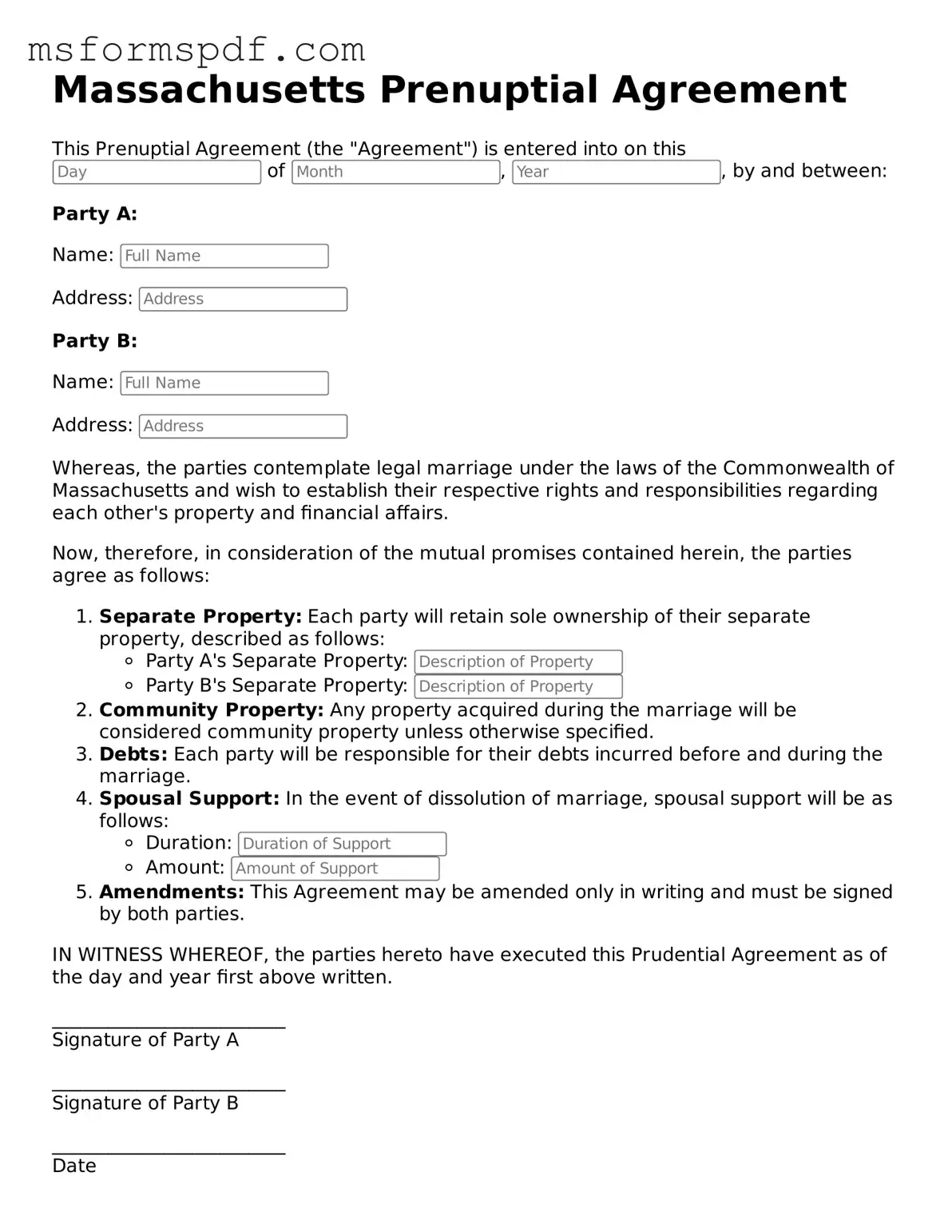Blank Massachusetts Prenuptial Agreement Document
A Massachusetts Prenuptial Agreement form is a legal document that couples use to outline the division of assets and financial responsibilities in the event of a divorce. This form helps clarify expectations and can protect individual interests before marriage. Understanding its importance can lead to a more secure and informed partnership.
Launch Editor Now

Blank Massachusetts Prenuptial Agreement Document
Launch Editor Now

Launch Editor Now
or
➤ Prenuptial Agreement PDF Form
Just a moment — finish the form
Fill out Prenuptial Agreement digitally — no scanning, no printing.